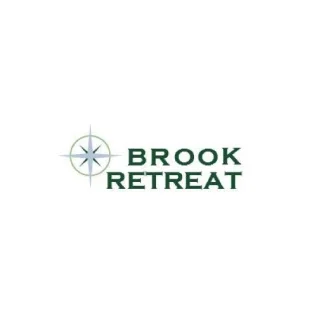Anchor House
Anchor House is an inpatient rehab located in Plymouth, MA. Anchor House special...
Brook Retreat is a faith-based substance abuse treatment program in Plympton, Massachusetts. Guided by the 12-step philosophy and emphasizing holistic healing, this facility presents a structured and supportive journey toward sobriety for both men and women.
The Brook Retreat offers comprehensive addiction treatment services including:
Recognizing the unique challenges faced by different genders in recovery, Brook Retreat offers tailored, gender-specific residential treatments. Separate programs for men and women ensure that individual concerns are addressed with understanding and specificity, making the recovery process more targeted and effective.
The 12-step philosophy is foundational to Brook Retreat’s approach. This proven methodology not only offers a step-by-step guide to recovery but also instills values of accountability, community, and spiritual growth. Embracing these principles, residents find a deeper understanding of their journey and a solid framework to lean on.
Offering stability and routine, structured living at Brook Retreat equips residents with discipline and habits essential for sustained recovery. The predictability and rhythm of daily life in the retreat foster personal growth and resilience.
The essence of community is felt deeply here. Residents, through peer interactions and group activities, build relationships anchored in mutual trust and support. This camaraderie ensures that the recovery journey is shared, and challenges are faced collectively.
Complementing its core practices, Brook Retreat emphasizes holistic healing. Meditation, yoga, and other integrative therapies are incorporated, ensuring that healing is comprehensive, encompassing mind, body, and spirit.
Contact us for more information: (781) 285-5760

Connect with The Brook Retreat by calling their admissions team directly.
(781) 285-5760 Website Get DirectionsResearch clearly demonstrates that recovery is far more successful and sustainable when loved ones like family members participate in rehab and substance abuse treatment. Genetic factors may be at play when it comes to drug and alcohol addiction, as well as mental health issues. Family dynamics often play a critical role in addiction triggers, and if properly educated, family members can be a strong source of support when it comes to rehabilitation.
In individual therapy, a patient meets one-on-one with a trained psychologist or counselor. Therapy is a pivotal part of effective substance abuse treatment, as it often covers root causes of addiction, including challenges faced by the patient in their social, family, and work/school life.
Life skills trainings involve all the skills a person must have in order to function successfully in the world. These include time management, career guidance, money management, and effective communication. Truly successful addiction recovery is based on the ability to not only live substance-free, but to thrive. Life skills teaches the practical necessities of functioning in society, which sets clients up for success in life, and therefore sobriety.
Recreational therapy (aka therapeutic recreation) uses creative and fun activities to help with addiction recovery. Recreational therapists lead patients in entertaining and engaging activities like sports or games; art (drawing, painting, sculpture); drama, music, and dance; and/or community outings (field trips) to improve patients' physical, social, and emotional well-being.
In individual therapy, a patient meets one-on-one with a trained psychologist or counselor. Therapy is a pivotal part of effective substance abuse treatment, as it often covers root causes of addiction, including challenges faced by the patient in their social, family, and work/school life.
Life skills trainings involve all the skills a person must have in order to function successfully in the world. These include time management, career guidance, money management, and effective communication. Truly successful addiction recovery is based on the ability to not only live substance-free, but to thrive. Life skills teaches the practical necessities of functioning in society, which sets clients up for success in life, and therefore sobriety.
Recreational therapy (aka therapeutic recreation) uses creative and fun activities to help with addiction recovery. Recreational therapists lead patients in entertaining and engaging activities like sports or games; art (drawing, painting, sculpture); drama, music, and dance; and/or community outings (field trips) to improve patients' physical, social, and emotional well-being.
Life skills trainings involve all the skills a person must have in order to function successfully in the world. These include time management, career guidance, money management, and effective communication. Truly successful addiction recovery is based on the ability to not only live substance-free, but to thrive. Life skills teaches the practical necessities of functioning in society, which sets clients up for success in life, and therefore sobriety.
Recreational therapy (aka therapeutic recreation) uses creative and fun activities to help with addiction recovery. Recreational therapists lead patients in entertaining and engaging activities like sports or games; art (drawing, painting, sculpture); drama, music, and dance; and/or community outings (field trips) to improve patients' physical, social, and emotional well-being.
Recreational therapy (aka therapeutic recreation) uses creative and fun activities to help with addiction recovery. Recreational therapists lead patients in entertaining and engaging activities like sports or games; art (drawing, painting, sculpture); drama, music, and dance; and/or community outings (field trips) to improve patients' physical, social, and emotional well-being.
Anchor House is an inpatient rehab located in Plymouth, MA. Anchor House special...
Bay State Community Services is located in Plymouth, Massachusetts. Bay State Co...
South Bay Community Services - Plymouth Day Services/Mental Health Clinic provid...